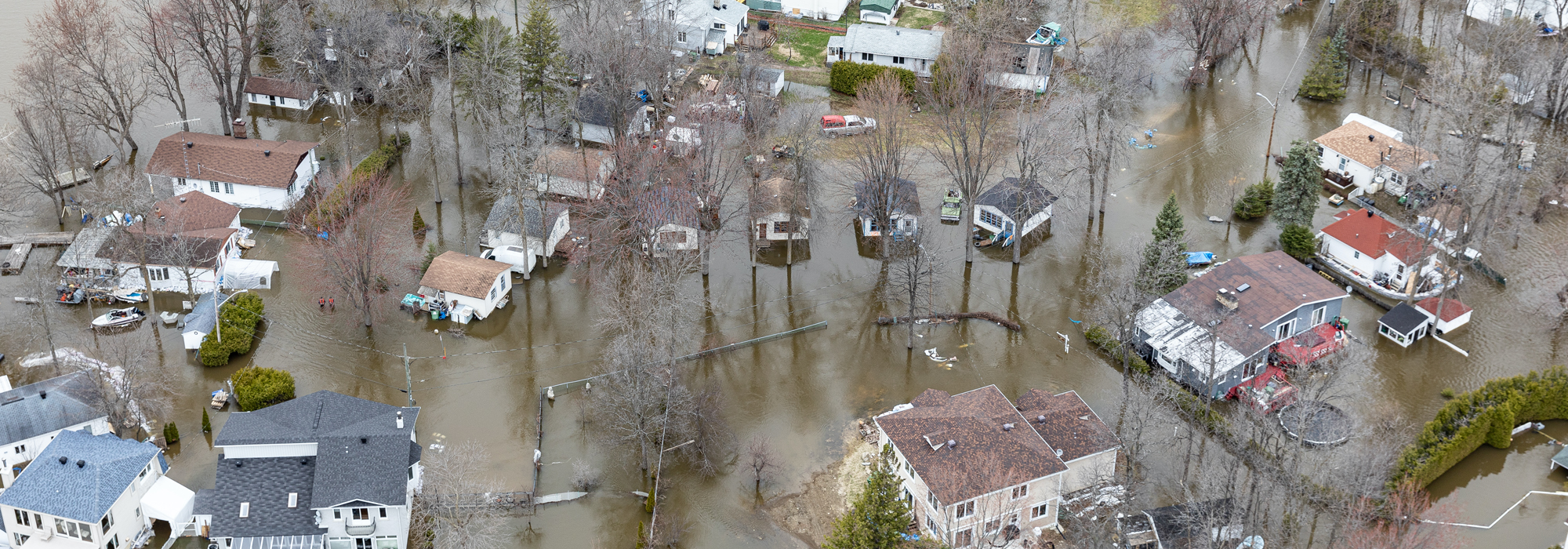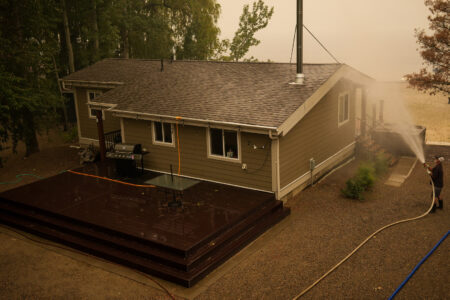
In mid-May, the federal government announced a major program to help large companies address the economic impacts of the COVID-19 crisis. The Large Employer Emergency Financing Facility (LEEFF) will provide bridge loans to help companies address cash shortfalls due to the downturn. To access the program, companies must meet several requirements. One of them is to publish annual climate disclosure reports consistent with international standards, including how their future operations will contribute to achieving Canada’s climate goals.
Having companies report climate progress and risk exposure is smart. Climate-related financial disclosures are a reporting technique companies use to identify and disclose the material risks posed by climate change to their operations. This information helps companies to plan investments that mitigate the risks posed by climate impacts on their operations, supply chains, products and strategy. It also helps investors, lenders and insurers understand the risks a business faces.
Climate reporting is becoming increasingly common; 79 percent of Canada’s TSX-listed firms now provide some level of climate disclosures. Under the federal LEEFF program, firms’ reporting must follow the standards set by the Task Force for Climate-Related Financial Disclosure (TCFD) – a widely accepted international best practice that has been endorsed and adopted by over 1,000 global companies and investors with a combined market cap of US$12 trillion.
Accessing LEEFF funding also requires companies to report on how their plans align with Canada’s international climate commitments – to achieve a 30 percent reduction by 2030, and net-zero emissions by 2050. This is smart policy. It supports emission reductions, and helps Canadian businesses prepare for where the global economy is going. Most firms are already moving in this direction by boosting energy efficiency, shifting to renewable power, adopting cleaner technologies, and developing plans to succeed in the global transition to a low-carbon economy, which offers a $26 trillion market opportunity across all sectors.
Some have taken issue with adding climate (and other) conditions to these federal loans, arguing that they should come with no strings attached. That is short-sighted. Responsible climate reporting and performance is increasingly becoming a requirement to secure investment, as evidenced by Blackrock, the Norwegian Pension Fund and many others who have recently announced they are divesting from high carbon businesses. To attract private capital, Canadian companies will need to meet the disclosure standards that most major investors are adopting.
Given that Canadian taxpayers are providing public money to support large businesses (as we should in this difficult time), it is smart and responsible to require those same world-class climate reporting standards. It is also entirely appropriate that those funds produce both private and public benefits – such as protecting workers’ pensions, promoting equity (by avoiding executive bonuses), and preparing for a low carbon future.
That is what former US president Barack Obama did in the 2009 economic downturn. The US government bailed out the auto industry with billions in public funding on the condition that it meet tougher emission standards. When the new rules kicked in, it not only reduced vehicle emissions (a major cause of climate change), it also helped the industry become more competitive and profitable coming out of the recession – because it was making cleaner, more efficient cars that are the future of the industry globally.
Canada’s large industry loan program takes a similar approach. It provides the immediate funding that firms need now, and adds a climate reporting requirement – that will start in about a year, once firms are getting back on their feet. The requirement will help them come out of the downturn positioned for cleaner performance and long-term competitiveness.
Of course, the devil will be in the details. Several specific requirements can help ensure the LEEFF program achieves the twin goals of providing short-term relief and supporting long-term clean competitiveness:
- Implement the recommendations of the Expert Panel for Sustainable Finance. The Expert Panel report called for a phased-in approach to climate-related financial disclosure to give companies time to set up the internal systems needed to track and capture performance data. The LEEFF requirements should allow for phase 1-level disclosures for the first two years of the loan, and then require phase 2-level disclosures in every year after.
- Use the highest Sustainability Accounting Standards Board (SASB) standards. The information disclosed by companies should be tracked and collected using established, proven techniques. Mandating the use of the SASB sustainability accounting standards – which are endorsed by major investors (worth US$34 trillion) and followed by leading companies around the world – would standardize measurement and reporting around environmental issues. This would offer apple-to-apple comparisons between companies, and ensure our business keep pace with global leaders in corporate reporting.
- Provide guidance on climate plan requirements. While there are clear, existing standards for effective climate risk disclosure and reporting (TCFD, SASB), those same kinds of accepted standards do not yet exist for climate plans – particularly to achieve net zero by 2050. It is important for government to provide clear guidance for developing plans – their scope, contents, timespan, for example. Like the TCFD standards, that guidance should provide enough clarity to ensure plans are effective but leave enough flexibility for firms to tailor them to their own situations, and to try out different approaches. And the requirements should be phased in, as with the TCFD recommendations. These firm-level low carbon plans will be most effective when nested within sector-level strategies.
The government should initiate clean competitiveness roadmaps for key sectors – as the Sustainable Finance Panel recommended – as part of its planning process for achieving net zero emissions by 2050. (More on this in upcoming Smart Prosperity Institute reports.) - Provide support for climate planning. Most businesses already do some kind of climate planning. And a growing number of far-sighted firms have committed to achieve net zero emissions by 2050, such as Microsoft, Nestlé, Shell, Teck, and Canada’s steel industry. But many firms are not at that stage yet, so meeting this condition will require additional thinking and longer-range planning. To help them do this, in a time of economic recovery, government should provide support. For example, 50 percent of the costs of doing climate planning could be deductible from the loan repayment, up to a certain cap (say one percent of the loan value), as long as the plan meets the guidelines. Providing such support recognizes that effective climate planning has both public and private benefits: it helps Canada meets it emissions targets, helps protect taxpayer investments by better accounting for risks, and helps firms prepare for where the global economy is going.
The LEEFF has the ingredients to be smart stimulus. It gives Canadian businesses the immediate financial support they need to weather the COVID-19 crisis. And, with the above recommendations, it can help them recover in a stronger competitive position to attract capital, generate jobs and grow in the emerging low carbon global economy – by requiring climate reporting and planning practices that are being adopted by leading investors and well-managed firms globally.
This article is part of the The Coronavirus Pandemic: Canada’s Response special feature.
Photo: Shutterstock.com, by GLFotografie











